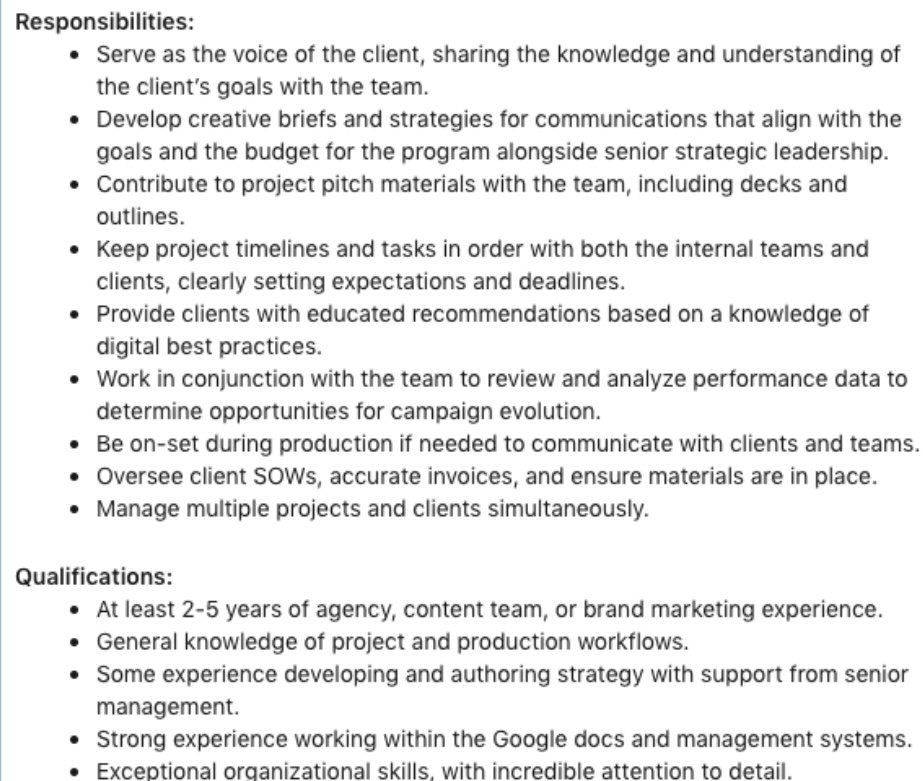
Project Management Roles have been around for quite some time now. As with most roles, the qualification and job description of these roles have changed immensely over the past ten years or so. In the past project management roles mainly consisted of overlooking multiple projects and dozens of employees at a time. Lacking the love and tenderness for specific and extremely important projects.
Now, organizations everywhere are recognizing the value of dedicating individual project managers to crucial ventures. Having one dedicated employee commanding the project’s initiatives from start to finish has changed the game in the world of project management. With this information, you can now imagine why the project manager roles are all the hype. They can make or break the success of your most pressing growth plans. Project Management Roles are continuing to top lists of in demand roles to go to year over year.
What is a Project Manager?
In almost every industry, project managers are professionals who overlook the planning, procurement, and execution of the project at hand. They are in charge of keeping up with the project teams, how to stay under budget, deliver items on time, communicate with upper leadership, the current problems at hand, and how to solve them.
Why Are Project Managers Critical to Success?
From the information you have read so far, I’m sure you can conclude why they are of the utmost importance. But, there is a little more to it. Project managers are the main line of contact between leadership, the Project Teams as well as customer. They contain the detailed information directly from C-suite executives that is needed to help guide employees on the project. Without a project manager, it would leave the responsibility to leadership or clients to manage projects, while barely being able to breathe with their own obligations.
Project managers keep the flow of communication strong between leadership and people working directly on the projects. Without them, employees sometimes feel overwhelmed and micro-managed with ongoing situations regarding the project. Everyone has their specific role in projects and they want to strive to do their best without the involvement of people emotionally invested in the vision. Having proper organization and communication is a make or break for the success of most projects.
Getting Started As A Project Manager in Two Steps
Step 1:
As mentioned before there are a plethora of project management roles out there. Some companies still require a bachelor’s degree in a major relevant to a management role. But, many companies are dropping bachelor requirements with the exception of certificates. In-person or online certificates are dedicated to specific roles and are newly popular in the workforce. They are much easier, affordable, and reliable in the long term for employers and employees. Best of both worlds!
Here is a list of recommended certificates you can obtain:
APM: Associate Project Manager
This entry-level certificate will be the easiest and most productive way to enter the world of project management. It is a globally recognized certificate and teaches the basics of the project management role, what to expect, and how to succeed.
PMP: Project Management Professional
The most highly regarded certificate in the project management world. It is recognized worldwide because you can work in virtually any industry after obtaining it. It does take a lot of studying, it is not an easy one to take down. But, definitely not impossible and all worthwhile!
CSM: Certified Scrum Master
Agile methodologies are increasing in popularity around the globe. With the booming technology industry organizations need internal strategy more than ever. As a certified Scrum Master, you will learn the ins and outs of the scrum framework to structure your internal affairs, help guide your teams to success and show off to your future boss!
CAPM: Certified Associate in Project Management
This specific certificate will teach the fundamentals, terminology, and processes of a successful project manager. It will test your current abilities while simultaneously teaching you growth in this role, allowing you to stand out from other potential candidates.
PPM: Professional in Project Management
The Global Association for Quality Management allows you to take a mid-level certification course to enhance your project management skills. It trains you to develop project schedules, watch project budget measurements, as well as different skills to help lead and manage projects uniquely.
These courses are here to buckle down on specifics. Nearly 60% of Americans do not have a college degree. These amazing courses help you dive into new skill sets without drowning in the thousands of dollars of debt surrounding a bachelor’s degree.
Step 2:
Read online job descriptions of project management roles. Read a lot of them. Project management roles have diverse daily activities depending on the industry. Dig deep into companies that interest you and read what they are looking for in a project manager. The more you know the better, and when the time comes it helps you in the interview process.
Here is an example:
This is a job description posted on Linkedin, from a digital media company based in Los Angeles.

By breaking down what this company’s responsibilities and qualifications are, you have a better chance of studying the necessary courses to develop the strongest skills. Understand the project manager language, don’t know what SWO means? Read up on it. Do you know how to make a pitch deck? Watch some course videos. Don’t know the best internal strategy? Look into hot strategies right now. Take the time to research. This proves to the hiring manager you are skilled enough to handle the role and helps you in the long term!
Necessary Skills to be a Successful Project Manager
Every employer is different, but overall hiring managers look for these strong skills when scouting potential hires.
Extreme Communication Skills
As a project manager, you are in a direct line of contact with the leadership. Communicating the advancement of venture goals is crucial to the ongoing success of the projects at hand.
Autonomous Decision Making
When being considered for a management role, hiring managers want to know that you have a sense of autonomy within your position. Of course, they will walk you through their initial visions, but during the project creation, they want to know you can make trustworthy decisions based on what is best for the company.
Organizational & Problem Solving Capabilities
Being quick on your feet with these go awry will take you far. We can’t ignore issues when they appear, but we can try and plan for them. This is where having strong organizational skills and problem-solving skills go hand-in-hand. These skills will always be highly noted in an interview as well!
Honesty
This one is really important. Falling into a management role means you will have a lot of people putting their trust in you. Employers and employees will be counting on you to support them and their decisions along the way. Show your interviewer you have the trust it takes to uphold their well-respected company standards and you are a shoe-in!
In Conclusion
Hopefully, you are no longer wondering what a project manager does and you have an idea of the next steps to becoming the best! There are brilliant ways of learning new skills. You have, without a doubt, the ability to make your greatest fears become your easiest task. With the correct knowledge and resources, you can be the next best project manager you never thought you could be!





